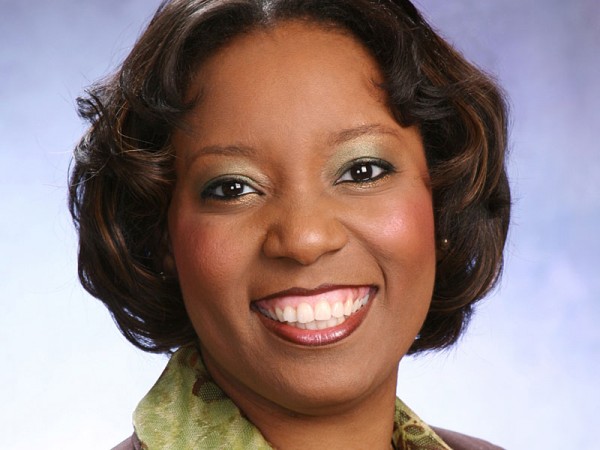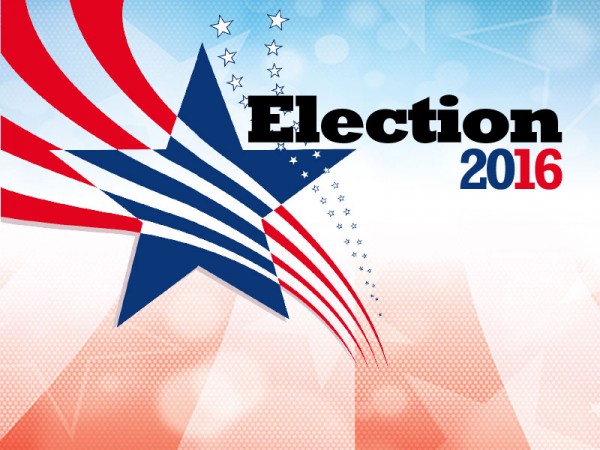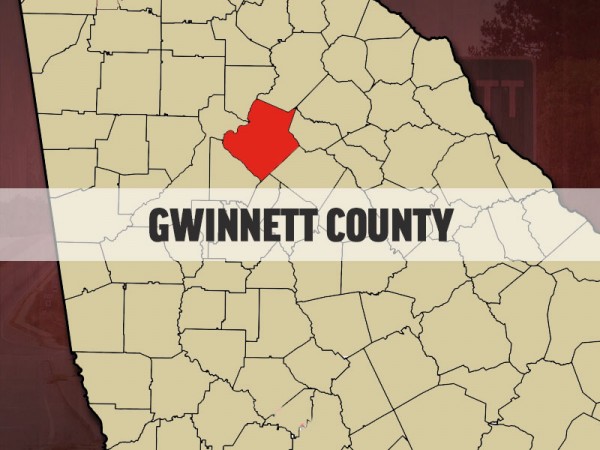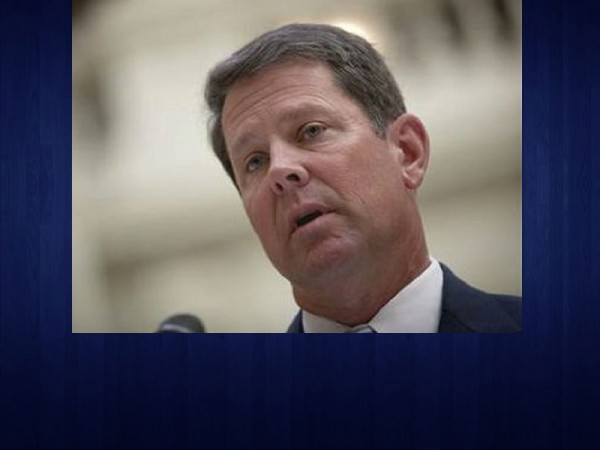U.S. Rep. Doug Collins has again defended his controversial vote in December for a $1.1 trillion omnibus spending bill, a vote that has become the rallying cry for his opponents in the upcoming primary.
Collins said he believes the vote was the right decision for the people of the 9th Congressional district, which he represents, and he reiterated previous statements that none of the money Planned Parenthood got from programs funded by the bill paid for abortions.
In a wide-ranging, exclusive interview with AccessWDUN on Saturday, Collins also discussed his votes for former Speaker of the House John Boehner, immigration, guns, religious liberty bills, the tristate water wars, North Korea and Donald Trump.
Collins, a two-term Republican representative from Gainesville, is facing four Republicans – former U.S. Rep. Paul Broun, Roger Fitzpatrick, Bernie Fontaine and Mike Scupin – in the May 24 primary. A runoff, if necessary, will be July 26. The winner faces no Democratic opposition in November.
On the omnibus bill, Collins said too many good things were included in the bill to vote against it just because of the Planned Parenthood issue.
“The riders in the bill make it very clear, and they have been proved over time, no federal dollars go to abortion in Planned Parenthood, period,” Collins said. “Hasn’t been for years.”
Collins said the omnibus bill cut spending to 2008 levels, before President Obama took office, cut more than $1 billion from the Internal Revenue Service budget, opened international markets to U.S. oil and provided no new funding for Obamacare. He accused his opponent of playing games with the omnibus vote.
“There are some of my opponents who will vote no for anything,” Collins said. “Voting no is not leadership. Not if you don’t get anything accomplished. It’s a great sound bite. … A leader takes votes and comes back home and explains those votes.”
Collins said he despises Planned Parenthood because they perform abortions. But he said funding the organization can receive through programs in the omnibus bill only pays for services other than abortion.
“In some places, Planned Parenthood provides other medical services,” he said. “In some places, they are the primary (health care) provider for women.”
He said he would continue to fight funding to organizations that provide abortion services. But he said the omnibus bill was the wrong forum for that fight.
“If it were so easy in an omnibus bill to get out that money, then why do I still have 100 percent rating with National Right to Life, Georgia Life Alliance, Family Research Council” and similar organizations, Collins said. “If all these groups thought this was where the fight would take place, they would have mobilized heaven and earth to get there. They know the pro-life cause is bigger than this one vote.”
Collins has also been criticized for his vote and support of former House Speaker John Boehner, who critics said wasn’t conservative enough and worked too closely with congressional Democrats.
“John Boehner, who I had multiple disagreements with, was our nominee coming out of conference,” Collins said. “If someone else wanted to be speaker, then offer me a credible plan to be speaker. … This is the third in line to the presidency. This is not someone wanting to be elected class president.”
Collins has also faced some backlash for his support of current Speaker Paul Ryan, and he stopped short of saying he would definitely support Ryan if he seeks another term as speaker. But he gave Ryan strong marks for trying to make a difference.
“Paul Ryan promised he would open up the process,” the congressman said. “We’ve seen that. We’ve had more amendments on the floor. We’ve had more discussion. He’s started task forces. He’s included all groups, from our very, very conservative who felt ostracized to our very, more moderate, which actually exists in the Republican Party. It’s not all like Northeast Georgia. He’s trying to find consensus on votes.”
He also reminded his critics that “conservatives were joyful” four years ago when Ryan was nominated as Mitt Romney’s vice presidential running mate.
Collins acknowledged that a great many voters are dissatisfied with the job Congress is doing. A recent Rasmussen poll put Congress’ approval rate at just 11 percent. Sixty percent said Congress was doing a poor job.
Poll surges by outsiders Donald Trump and Bernie Sanders lend credence to the argument that voters are unhappy with the status quo embraced by some in Washington. Likewise, nine of 11 House incumbents in Georgia are facing opposition in 2016.
But he denied those numbers are why he has drawn so much opposition this year.
“We’ve got four opponents because they don’t like some of my votes, let’s be honest,” he said. “That’s fine. That’s why you pay your $5,200 (qualifying fee). We don’t run from this.”
He said people sometimes pay too much attention to what’s on talk radio while missing the real issues in a community.
“A lot of people who simply get up and go work every day, who don’t turn on talk radio, who don’t read the newspapers are more concerned about do they have a job, is my employer going to able to afford to give me a raise, is my employer going to be able to expand my business,” he said. “That’s what people care about.”
On the tristate water wars, Collins said the Georgia delegation is prepared to fight language dropped last week into a spending bill for the U.S. Department of Justice. The committee overseeing the bill is chaired by Alabama Sen. Richard Shelby, who has repeatedly tried to get language through Congress that would give Alabama and Florida a leg up in the decades-old fight over the water in Lake Lanier.
He said the governors of the three states – not the Congress – should settle the water issue. He also said he believes the court will “pick around the edges” of the issue, but ultimately not settle it.
“From a states’ rights perspective, we want this to be settled by Georgia, Florida and Alabama,” Collins said. “Richard Shelby knows they are in a bad position. Richard Shelby knows they have not done what Georgia has done on this issue. He wants to insert this language that could lead us, seriously, back to rationing and back to things that could kill economic development in Georgia.”
Collins also touched on a number of other issues during the 45-minute interview.
IMMIGRATION: Collins said he agrees with Donald Trump that a wall should be built along the U.S.’s southern border as both an immigration and national security issue. But he is less enthusiastic about the ability to easily round up some 11.4 million immigrants estimated to be living in the U.S. illegally.
“It’s realistic to build a wall,” he said. “It’s realistic to keep our southern border, especially that one, intact and to keep it secure. To say with one fatal swoop, we’re going take all 11 million and send them home, that’s a harder issue.”
He said securing the border is what must be done first to address the issue of illegal immigrants, and he blamed the Obama administration for focusing its attention on the wrong issue.
“Here’s the way it works in Washington: They walk into a basement,” he said. “They see the floor is flooded and they look across the basement and they see the broken pipe throwing out water. In Washington, this administration’s idea is to let’s just deal with the water on the floor. My idea is that you first fix the pipe, and then you deal with whatever.”
Collins acknowledged that immigrants are providing a part of the U.S. work force, but he said the country can’t always look at the economic benefit over the legality issue. Congress should, he said, provide programs that allow immigrants to come legally to the U.S. for work. But it should also provide a method to track those immigrants once they get here.
“Over 45 percent of those who are here illegally, the United States gave them a piece of paper and said you can come into our country for a period of time,” he said. “And they overstayed their visas. They were legal. They didn’t walk across the Rio Grande. We don’t even have a system that captures them and can go get them. This is how broken the system is."
RELIGIOUS LIBERTY BILLS: Collins said he would have voted for Georgia’s so-called “religious liberty bill” had he still been a member of the Georgia House.
“From what I’ve seen and read, the legislature came up with a good compromise,” Collins said. “I would have voted for it. I think there undoubtedly was a good reason why [Gov. Nathan Deal] chose not to sign it. So here’s my recommendation. Let’s get started now to get it fixed. I encourage them, get back and find a solution.”
Several states have dealt with or are dealing with similar bills. In North Carolina, the so-called “bathroom bill” has drawn threats of boycotts from corporations and entertainers. Similar threats have been made over a new law in Mississippi.
As the debate spreads to other states, Collins said Congress has no role to play in this battle.
“It’s a perfect example of states need to do this,” he said. “Sometimes, we say if we can’t get something here, we’ll run to Congress. I want the states to have this healthy debate, to have these discussions, and yeah, I want religious freedom protected. That’s what the legislative process should be about.”
GUNS: The interview with Collins came on the morning that news was breaking of mass shooting in both Ohio and outside of Augusta, Georgia. But the shootings haven’t changed Collins’ position, which has earned him an A rating from the National Rifle Association.
“How many of those guns were unattended last night?” he asked. “None. Somebody pulled the trigger. I think the issue we have here is we have bad people doing bad things. From my faith perspective, it’s sin.”
He acknowledged that many people who are guilty of the mass shootings are suffering from mental illness, and he said the mental illness issue should be addressed. But he stopped short of adding mental illness to the list of items reviewed by background checks.
“You can go to any of your sheriffs in Northeast Georgia right now and they’ll tell you 30-40 percent of their jail populations have serious mental illness,” Collins said. “Those are the kinds of things we can work on. But what does mental illness actually entail? … There’s a fine balance here and to just all of a sudden for a government that we – frankly, myself included – don’t trust with personal records to say we’re going to do background checks that include medical records, we’re going down a disturbing road there.”
NORTH KOREA: Also on the morning of the interview came news that North Korea apparently has fired a ballistic missile from a submarine as part of its ongoing nuclear testing. Collins said the U.S. is doing what it can do to stop North Korea’s push for a weapon that could possible reach the U.S. mainland.
“That’s becoming an issue for China,” he said. “China has always been the one who had the thumbprint on North Korea. … We’re going to have to do more. We’re going to have to work with that region. But China is going to be the real player there.”
DONALD TRUMP: Collins wouldn’t say whether he would he would support businessman Donald Trump if he wins the Republican nomination, preferring to let the system play itself out. Collins initially endorsed Wisconsin Gov. Scott Walker in the early days of the campaign.
“I think I’m looking forward to seeing who our nominee is,” he said. “And when you look at the alternatives on the other side, that’s something we’ve got to look at. I have a lot of concern about a lot that’s been said in this campaign, but what we have to do now is let our process work.”
THE CAMPAIGN: Collins said he felt good entering the last month of the primary campaign and would continue to do the things he’s done since he first announced he would seek office in 2012.
“At the end of the day, it’s frankly, about leadership and it’s about not worrying about anything except the reason you ran," Collins said. "For me, that was my kids, for the 9th district and for Georgia. … We said we’d be a consistent conservative. We are a consistent conservative. You’ll know what Doug Collins is going to do. We’ll put up a record that is conservative, that represents the people of the 9th district and the values that we hold dear.”

















